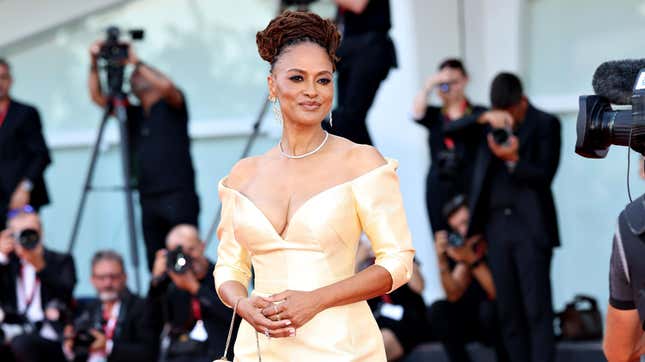Ava DuVernay Is the First Black American Woman to Compete at the Venice Film Festival
"I can’t tell you how many times I’ve been told, ‘Don’t apply to Venice, you won’t get in. It won’t happen,’ the Oscar-nominated filmmaker told Variety.
EntertainmentMovies

This week, Oscar-nominated filmmaker, Ava DuVernay once again made history as the first Black American woman to compete in the Venice Film Festival. Given international film festivals tend to maintain a proclivity for platforming predominantly white, male, and—too often—predatory filmmakers, that DuVernay is the first Black American woman to present a film in competition at the festival doesn’t exactly come as a surprise. It does, however, speak directly to the industry’s inherent racism.
“I can’t tell you how many times I’ve been told, ‘Don’t apply to Venice, you won’t get in,’” the famed director and producer said during a press conference for the film on Wednesday. “It won’t happen.’”
“For Black filmmakers, we’re told that people who love films in other parts of the world don’t care about our stories and don’t care about our films. This is something that we are often told: you cannot play international film festivals, no one will come,” DuVernay explained. “People will not come to the press conferences, people won’t come to the P&I screenings. They will not be interested in selling tickets.”
-

-

-

-

-

-

-

-

-

-

-

-

-

-

-

-

-

-

-

-

-

-

-

-

-

-

-

-

-

-

-

-

-

-

-

-

-

-

-

-








































